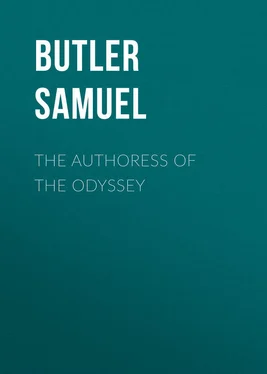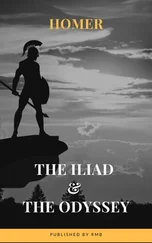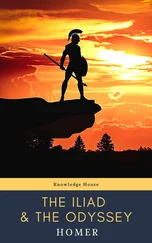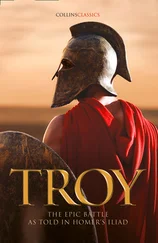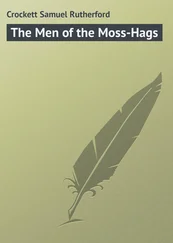Samuel Butler - The Authoress of the Odyssey
Здесь есть возможность читать онлайн «Samuel Butler - The Authoress of the Odyssey» — ознакомительный отрывок электронной книги совершенно бесплатно, а после прочтения отрывка купить полную версию. В некоторых случаях можно слушать аудио, скачать через торрент в формате fb2 и присутствует краткое содержание. Жанр: foreign_antique, foreign_prose, на английском языке. Описание произведения, (предисловие) а так же отзывы посетителей доступны на портале библиотеки ЛибКат.
- Название:The Authoress of the Odyssey
- Автор:
- Жанр:
- Год:неизвестен
- ISBN:нет данных
- Рейтинг книги:5 / 5. Голосов: 1
-
Избранное:Добавить в избранное
- Отзывы:
-
Ваша оценка:
- 100
- 1
- 2
- 3
- 4
- 5
The Authoress of the Odyssey: краткое содержание, описание и аннотация
Предлагаем к чтению аннотацию, описание, краткое содержание или предисловие (зависит от того, что написал сам автор книги «The Authoress of the Odyssey»). Если вы не нашли необходимую информацию о книге — напишите в комментариях, мы постараемся отыскать её.
The Authoress of the Odyssey — читать онлайн ознакомительный отрывок
Ниже представлен текст книги, разбитый по страницам. Система сохранения места последней прочитанной страницы, позволяет с удобством читать онлайн бесплатно книгу «The Authoress of the Odyssey», без необходимости каждый раз заново искать на чём Вы остановились. Поставьте закладку, и сможете в любой момент перейти на страницу, на которой закончили чтение.
Интервал:
Закладка:
The sex difference is the profoundest and most far-reaching that exists among human beings… Women may or may not be the equals of men in intelligence;… but women in the mass will act after the manner of women, which is not and never can be the manner of men.
And as they will act, so will they write. This, however, does not make their work any the less charming when it is good of its kind; on the contrary, it makes it more so.
Dismissing, therefore, the difficulty of supposing that any woman could write so wonderful a poem as the Odyssey , is there any à priori obstacle to our thinking that such a woman may have existed, say, B.C. 1000? I know of none. Greek literature does not begin to dawn upon us till about 600 B.C. Earlier than this date we have hardly anything except the Iliad , Odyssey , and that charming writer Hesiod. When, however, we come to the earliest historic literature we find that famous poetesses abounded.
Those who turn to the article "Sappho" in Smith's Dictionary of Classical Biography will find Gorgo and Andromeda mentioned as her rivals. Among her fellows were Anactoria of Miletus, Gongyle of Colophon, Eunica of Salamis, Gyrinna, Atthis, and Mnasidica, "Those," says the writer, "who attained the highest celebrity for their works were Damophylia the Pamphylian, and Erinna of Telos." This last-named poetess wrote a long poem upon the distaff, which was considered equal to Homer himself – the Odyssey being probably intended.
Again, there was Baucis, who wrote Erinna's Epitaph. Turning to Müller's work upon the Dorians, I find reference made to the amatory poetesses of Lesbos. He tells us also of Corinna, who is said to have competed successfully with Pindar, and Myrto, who certainly competed with him, but with what success we know not. Again, there was Diotima the Arcadian; and looking through Bergk's Poetœ Lyrici Grœci I find other names of women, fragments of whose works have readied us through quotation by extant writers. Among the Hebrews there were Miriam, Deborah, and Hannah, all of them believed to be centuries older than the Odyssey .
If, then, poetesses were as abundant as we know them to have been in the earliest known ages of Greek literature over a wide area in Greece, Asia Minor, and the islands of the Ægæan, there is no ground for refusing to admit the possibility that a Greek poetess lived in Sicily B.C. 1000, especially when we know from Thucydides that the particular part of Sicily where I suppose her to have lived was colonised from the North West corner of Asia Minor centuries before the close of the Homeric age. The civilisation depicted in the Odyssey is as advanced as any that is likely to have existed in Mitylene or Melos 600 – 500 B.C., while in both the Iliad and the Odyssey the status of women is represented as being much what it is at the present, and as incomparably higher than it was in the Athenian civilisation with which we are best acquainted. To imagine a great Greek poetess at Athens in the age of Pericles would be to violate probability, but I might almost say in an age when women were as free as they are represented to us in the Odyssey it is a violation of probability to suppose that there were no poetesses.
We have no reason to think that men found the use of their tongue sooner than women did; why then should we suppose that women lagged behind men when the use of the pen had become familiar? If a woman could work pictures with her needle as Helen did, 6 6 Iliad , III. 126.
and as the wife of William the Conqueror did in a very similiar civilisation, she could write stories with her pen if she had a mind to do so.
The fact that the recognised heads of literature in the Homeric age were the nine Muses – for it is always these or "The Muse" that is involved, and never Apollo or Minerva – throws back the suggestion of female authorship to a very remote period, when, to be an author at all, was to be a poet, for prose writing is a comparatively late development. Both Iliad and Odyssey begin with an invocation addressed to a woman, who, as the head of literature, must be supposed to have been an authoress, though none of her works have come down to us. In an age, moreover, when men were chiefly occupied either with fighting or hunting, the arts of peace, and among them all kinds of literary accomplishment, would be more naturally left to women. If the truth were known, we might very likely find that it was man rather than woman who has been the interloper in the domain of literature. Nausicaa was more probably a survival than an interloper, but most probably of all she was in the height of the fashion.
CHAPTER II
THE STORY OF THE ODYSSEY
It will help the reader to follow the arguments by which I shall sustain the female authorship of the Odyssey , the fact of its being written at Trapani on the west coast of Sicily, and its development in the hands of the writer, if I lay before him an abridgement of the complete translation that I have made, but not yet published. If space permitted I should print my translation in full, but this is obviously impossible, for what I give here is only about a fourth of the whole poem. I have, therefore, selected those parts that throw most light upon the subjects above referred to, with just so much connecting matter as may serve to make the whole readable and intelligible. I am aware that the beauty of the poem is thus fatally marred, for it is often the loveliest passages that serve my purpose least. The abridgement, therefore, that I here give is not to be regarded otherwise than as the key-sketch which we so often see under an engraving of a picture that contains many portraits. It is intended not as a work of art, but as an elucidatory diagram.
As regards its closeness to the text, the references to the poem which will be found at the beginning of each paragraph will show where the abridgement has been greatest, and will also enable the reader to verify the fidelity of the rendering either with the Greek or with Messrs. Butcher and Lang's translation. I affirm with confidence that if the reader is good enough to thus verify any passages that may strike him as impossibly modern, he will find that I have adhered as severely to the intention of the original as it was possible for me to do while telling the story in my own words and abridging it.
One of my critics, a very friendly one, has told me that I have "distorted the simplicity of the Odyssey in order to put it in a ludicrous light." I do not think this. I have revealed, but I have not distorted. I should be shocked to believe for one moment that I had done so. True, I have nothing extenuated, but neither have I set down aught in malice. Where the writer is trying to make us believe impossibilities, I have shown that she is doing so, and have also shown why she wanted us to believe them; but until a single passage is pointed out to me in which I have altered the intention of the original, I shall continue to hold that the conception of the poem which I lay before the reader in the following pages is a juster one than any that, so far as I know, has been made public hitherto; and, moreover, that it makes both the work and the writer a hundred times more interesting than any other conception can do.
I preface my abridgement with a plan of Ulysses' house, so far as I have been able to make it out from the poem. The reader will find that he understands the story much better if he will study the plan of the house here given with some attention.
I have read what Prof. Jebb has written on this subject, 7 7 Journal of Hellenic Studies , Vol. VII. 170-88, and Introduction to Homer , 3rd edit. 1888, pp. 57-62, and Appendix, Note 1.
as also Mr. Andrew Lang's Note 18 at the end of Messrs. Butcher and Lang's translation of the Odyssey . I have also read Mr. Arthur Platt's article on the slaying of the suitors, 8 8 Journal of Philology , Vol. XXIV. p. 39, &c.
and find myself in far closer agreement with Mr. Lang than with either of the other writers whom I have named. The only points on which I differ from Mr. Lang are in respect of the inner court, which he sees as a roofed hall, but which I hold to have been open to the sky, except the covered cloister or μέγαρα σκιόεντα, an arrangement which is still very common in Sicilian houses, especially at Trapani and Palermo. I also differ from him in so far as I see no reason to think that the "stone pavement" was raised, and as believing the ὀρσοθύρα to have been at the top of Telemachus's tower, and called "in the wall" because the tower abutted on the wall. These are details: substantially my view of the action and scene during the killing of the suitors agrees with Mr. Lang's. I will not give the reasons which compel me to differ from Prof. Jebb and Mr. Platt, but will leave my plan of the house and the abridged translation to the judgement of the reader.
Интервал:
Закладка:
Похожие книги на «The Authoress of the Odyssey»
Представляем Вашему вниманию похожие книги на «The Authoress of the Odyssey» списком для выбора. Мы отобрали схожую по названию и смыслу литературу в надежде предоставить читателям больше вариантов отыскать новые, интересные, ещё непрочитанные произведения.
Обсуждение, отзывы о книге «The Authoress of the Odyssey» и просто собственные мнения читателей. Оставьте ваши комментарии, напишите, что Вы думаете о произведении, его смысле или главных героях. Укажите что конкретно понравилось, а что нет, и почему Вы так считаете.
